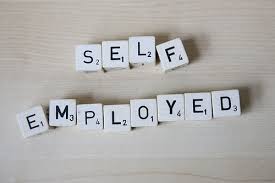 Being a business owner is a dream for many people. The idea of running a business the way you want and making all the decisions can be freeing. But what happens to your business when you have personal financial troubles? People sometimes worry they will lose their business if they file bankruptcy as an individual or couple. Being self-employed can make bankruptcy a bit more complicated, but I’m here to help you through the process.
Being a business owner is a dream for many people. The idea of running a business the way you want and making all the decisions can be freeing. But what happens to your business when you have personal financial troubles? People sometimes worry they will lose their business if they file bankruptcy as an individual or couple. Being self-employed can make bankruptcy a bit more complicated, but I’m here to help you through the process.
Getting Started
For someone who gets a regular paycheck with deductions and taxes already subtracted, showing proof of income is as simple as keeping copies of pay stubs. But when you’re self-employed, this is a little more challenging. Courts pay close attention to the information you provide to ensure that it is accurate. Everyone who files bankruptcy is required to show proof of income for the six months leading to bankruptcy. For a self-employed person, this could mean copies of invoices that you’ve billed to clients or signed statements from clients stating how much they paid you. You could also provide check stubs for money that you’ve received from clients or copies of bank statements showing deposits of checks or cash. A tax return may be acceptable, but only if the last six months are included.
In most cases, your business will not be affected by your personal bankruptcy, but basic information about the value of the business must be included in your paperwork. The court needs to see all this information in order to complete the Means Test and determine if you’re eligible for a Chapter 7. If you’re filing for a Chapter 13, the court will use your income to set up your repayment plan, so it’s especially important that they have an accurate idea of your complete financial situation.
Dealing with Creditors
Whether you’re self-employed or an hourly employee, filing bankruptcy starts your “automatic stay” protection, which means creditors must stop their debt collection efforts. Whereas an hourly or salaried employee may have their wages garnished prior to bankruptcy, a self-employed person or independent contractor is free from traditional wage garnishment. However, creditors can still collect your debt using “garnishment for property other than personal earnings” or “non-earnings garnishment.” This means creditors can take a one-time payment rather than taking deductions from each paycheck. Traditional wage garnishment allows creditors to subtract 25% of your disposable income from your paycheck, but for self-employed people, creditors can take 100% of your commission directly from your bank account! Obviously, this would put the consumer into a very serious situation, which is why it’s imperative to have an attorney working with you to give advice and provide protection.
Don’t Wait
Filing bankruptcy can be overwhelming, and when your business and livelihood are at stake, stress is dramatically increased. Don’t put off asking for help if you’re self-employed and considering bankruptcy. Together we’ll get an accurate picture of your overall situation and will make a plan to get your debt taken care of while preserving as much of your property and income as possible. Call me today to get started. Contact us today to get started. Click here if you need a Eugene bankruptcy attorney , or check here for our other Oregon and Washington locations.
